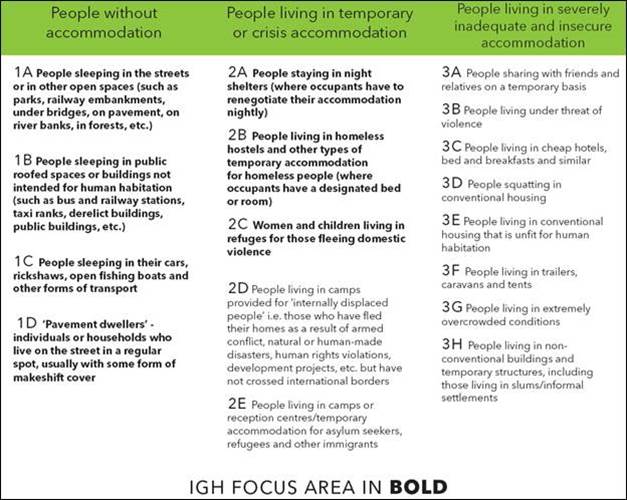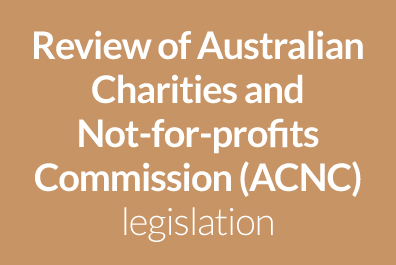
1 January 2018
Towards a global definition of homelessness and why it matters
I have to admit I was quite shocked to learn that there is no globally accepted definition of homelessness in all its forms.
We in the sector might talk about the different levels, but at an international level, through the UN, there is not a standard definition. Which of course makes it a little bit harder to pick up lessons learnt from different locations.
So while we may talk about street homelessness, or couch surfing or insecure housing – or primary, secondary and tertiary homelessness in some circles, when it comes to the sustainable development goals there is no such yard stick.
A home is a human right, it’s a place to be yourself and to thrive. It’s a place to be safe, to be a base for education, and to access employment and support.
Denial of a home, prevents people from achieving their full potential and we are all the poorer for it.
But what constitutes homelessness? Even its most obvious manifestation – sleeping on the streets, has no universal definition. If we are all going to agree to eliminate it, it would be good if we started on the same page.
Starting on the same page allows us to tailor solutions, and it allows us to hold Governments, and each other, accountable for preventing and eliminating it.
It allows us to know if our programs are effective, and it gives recognition to one of the most disadvantaged and marginalised groups in our community – moving it from out of mind, to the forefront of decisions.
That is why the Institute of Global Homelessness has proposed a framework for adoption by the international community.
There are three categories that correspond with use by the sector:
- People without accommodation
- People living in temporary or crisis accommodation
- People living in severely inadequate and insecure accommodation.
Each category then has sub-categories – such as 1 (a) People sleeping in the streets or in other open spaces…)
The full report is available here (NGAIRE PLEASE insert link http://docs.wixstatic.com/ugd/d41ae6_97a693a1aba845058f91e9cf38f7c112.pdf)
Having a universal definition may not sound like much, but it is an essential step in eliminating street homelessness.
It’s part of the reason the FamVin Homelessness Alliance (NGAIRE PLEASE insert http://www.vfhomlessalliance.org ), of which I’m a commission member, has committed to making it a focus for our advocacy at the United Nations.
Once a definition is adopted we can ensure that the UN and all state parties report on it as part of the global commitment to the sustainable development goals and that we can all ensure are efforts are making a difference.




